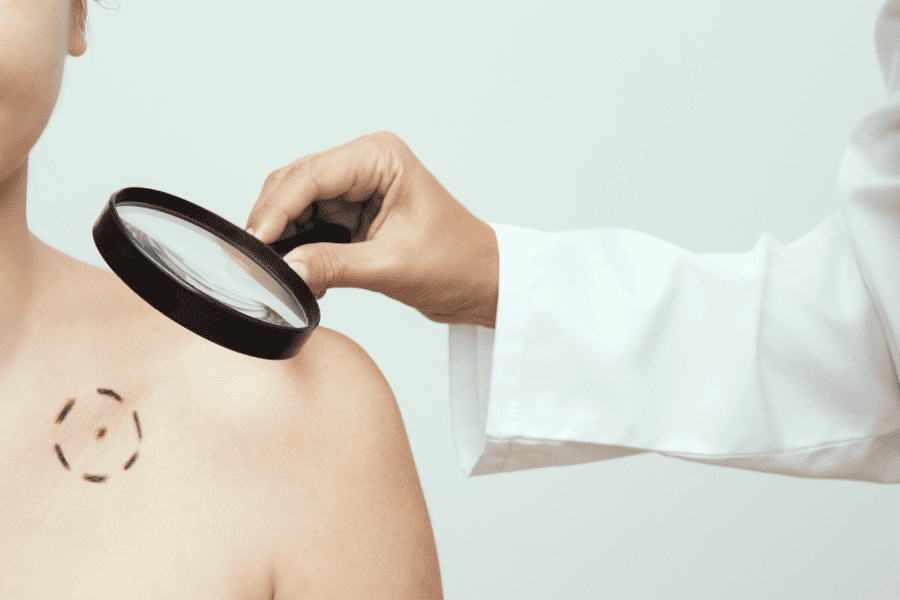Skin Cancer Screening
Home » Medical Dermatology » Skin Cancer Screening

Why is it important to get a full body skin cancer screening exam?
Skin cancer is the most common form of cancer in the United States with more new cases occurring than the combined incidence of breast, prostate, lung, and colon cancer each year. Every year, more than 2 million people are diagnosed with skin cancer, and many of these cases could be prevented by protecting the skin from excessive sun exposure and avoiding indoor tanning. Anyone can get skin cancer, regardless of skin color, and it is estimated that 1 in 5 Americans will develop skin cancer during their lifetime. With early detection, skin cancer is highly treatable. Early detection involves regular, full body skin cancer screenings at least once a year for most of the population, or more frequently if you have had a history of skin cancer.
What does a full body skin cancer screening exam involve?
In the privacy of one of our exam rooms, you will undress but be covered by a drape or gown. You can develop skin cancer anywhere you have skin – between toes, behind your ears, on your buttocks, groin, or genitalia, so it is important for us to inspect each body part. We kindly ask that women (or men) should not wear makeup or nail polish to the appointment. Wear your hair loose so that our providers can properly access your scalp. Your skin cancer screening exam should take roughly 15-20 minutes. The provider will examine each part of your skin and may use a special magnifying lens with a light-called a dermatoscope, in order to examine certain marks or lesions.
Start your journey
to Beautiful skin!
What happens if something abnormal is suspected?
When you come for your exam, you should be prepared for the possibility of a biopsy that day. In case you have never had a biopsy, it is a quick and simple procedure. We use local anesthetic and take a small tissue sample, which we then send out to have analyzed under a microscope by a dermatopathologist. The purpose of the biopsy is to diagnose the condition, not treat it, so once the biopsy site heals, if the biopsy revealed skin cancer, the remainder of the growth will be removed with an excisional procedure. This option will be discussed only if necessary.
